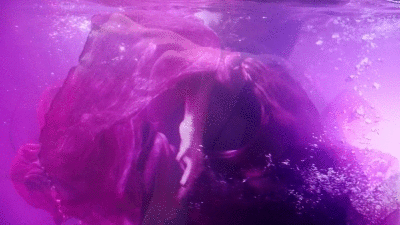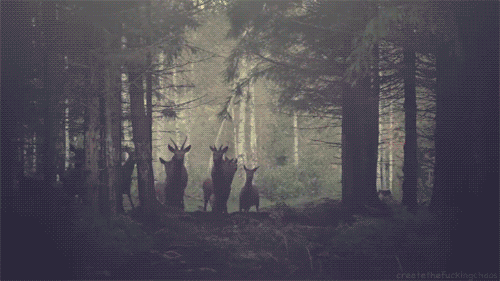~
PART ONE–THE FACADE
~

~
When I look in the mirror, I see a girl whose desire is painted green. Green. Like the gem she was named after or the light burning furiously at the end of the dock. I am The Great Gatsby reincarnated– a victim of false hope. And him and I, well we are very much the same; pursuers of the illusionary green light, of that chimerical dream that lies somewhere far beyond our realities. It is in our blood to chase after things that are faster than us, things we were never meant to have, things we were never meant to hold.
I look in the mirror and I see starry-minded romantic with saucer-shaped eyes large enough to harbour entire galaxies. There are remnants of pixie dust stuck to her lashes and dandelions seeds caught in her throat–the byproducts of wasted wishes, wishes that could never come true.
I look in the mirror and I see a daydreamer. And what a remarkably dangerous thing that is to be; to see life through the rose coloured lenses of your mind’s eye. Because nothing is quite as rosy when you look at things from the perspective of the world who has never been terribly fond of daydreams or of the lovely things you think of on the bus ride to school and in the still moments before you fall asleep.
I look in the mirror and see a girl–a vessel possessed by the soul of a man who daydreamed far too much for his own good. Because there is only so much loveliness that can go around. I look in the mirror and see the reincarnation of Mr. Jay Gatsby standing before me.
PART TWO–THE GIRL WITH THE PURPLE SOUL
~

~
I first coined the term, “The Girl With The Purple Soul” when I was in the eighth grade. I was around fourteen when I had started to develop a significant obsession with Lana Del Rey. One of my favourite songs by her is called “Off To The Races.” At the time, there was one line in the song that particularly struck me. It goes, “He knows me, every inch of my tar-black soul.” This lyric was the catalyst for my soon-to-be-epiphany. Because this got fourteen-year-old Jade thinking–If I had to assign one colour to represent my soul, what would that colour be?
I’ve always been a dark person–always had a dark mind. And it was this darkness that I considered when I decided what colour my soul should be. But, at the same time, many people consider me to be a vibrant, effervescent person. I needed to find a colour that would best suit this description. That is why I went with purple; because even the darkest shades of purple have a sort of vibrancy about them. Similarly, I can be vibrant–there are days when I cannot contain my energy or my animation. But then there are days when I do get caught up in the morbidity of my own thoughts. days when I do surrender to the darkness that festers inside of me.
I exist on both sides of the spectrum; I am a being comprised of the softest hues of lilac and the deepest shades of violet–a being constructed from the most untameable type of beauty and the most ravishing type of madness.
I am the girl with the purple soul.
PART THREE–MY ANTHEM
“Neptune” by Sleeping At Last
~

~
PART FOUR–THE POEM
“TO BE YOUNG”
~

~
We tell them that they’ve forgotten
what it’s like to be young
because they have forgotten
what it’s like to be young.
They’ve forgotten what it’s like to be
misunderstood,
what it’s like to feel
unheard.
And that when they were sixteen
they also felt the need to say,
“You’ve forgotten
what it’s like to be young.”
You’d think they would have remembered.
And maybe it’s all the coffee
because adults sure drink a ton of it.
And maybe it’s made them
bitter
because once you’ve grown up,
you don’t really have a taste for
sweetener.
Or maybe they’ve all just lost their footing
trying to balance their checkbooks
because I’ve heard that’s something adults
do,
but to this day I still haven’t got a
clue
as to what balancing a checkbook actually is.
But I guess it must be real important because
it’s caused them to lose their footing,
and they must have hit their heads on the way down.
But tell me is it so “important” that you’ve all
forgotten to listen to me when I need you to?
And God, that’s all I really want–
I just want you to listen.
I just want you to say that you get it.
That you know exactly how I feel
That I have the right to be angry.
That you know it sucks and you’re sorry that it does.
But you don’t say these things.
And that is the problem.
You hear
but with one
ear
and then out the other.
You hear,
but you don’t listen.
Because I’m just a dumb kid, right?
And I must have two left hands
because I don’t know my left from my right, right?
Because sixteen years isn’t enough time to know a thing, right?
But you’re wrong.
Because a girl can learn a fair bit
in a decade add six years.
And boy, have I learned things.
I’ve learned that sometimes the people
you care about most are the ones that
are capable of destroying you.
I’ve learned that everyone is a liar.
Or a hypocrite.
Or both,
whether they admit it or not.
I’ve learned what it’s like to feel like you’re soaring
but also what it’s like to feel like you’re plummeting.
And while I’ve learned how to love,
I’ve also learned to hate
and that sometimes the people that leave you
are the ones that don’t have a choice.
I’ve learned what’s is like to have a broken heart
and that it’s better to be broken than
to keep clinging onto the ones that broke you
in the first place.
And that is why I’ve learned to hurt.
And that is why I’ve also learned to harden myself
so I don’t have to hurt.
And that is why I’ve also learned that being sixteen
isn’t all it’s cracked up to be.
And that, my friend, is why I come to you.
Because right now, I am lost.
I feel so lost.
And so I was hoping you’d listen,
so that maybe you could help me find my way again.
help me find my way again.
I just want you to say
that you get it.
That you know exactly how I feel
That I have the right to be angry.
That you know it sucks and you’re sorry that it does.
But you don’t say these things.
And that is the problem.
And that is why I know you’ve
forgotten what it’s like to be young.
Because if you remembered, you wouldn’t be this way.
And how could you?
How could you forget what it’s like to be a kid?
~
If you are interested, here is the link to my blog: tickledpurple.edublogs.org
~
PART FIVE–THE WORDS
~

~
She is a wild thing.
And I say “thing”
and not girl or woman
because She is neither;
She is both,
caught somewhere in between
the liberated innocence of childhood
and the maddening corruption of growing up.
And this is precisely what makes Her
wilder than the rest of us.
Some will argue that She is woman and woman only,
leaving little room for,
what are considered by many to be,
girlish trivialities.
But these people have only ever viewed Her
from a respectable distance–
a distance from which She appears to occupy
both the form and the essence of a woman
what with Her full breasts and
the manner in which She writes poetry–
with a sort of opulent brutality.
What you will not see
is the girl
(if that is what you choose to call it)–
the lovely child-beast
that dwells inside of Her,
antlers entwined with garlands
of succulents and autumn leaves,
eyes veiled with an ethereal mist.
A deluge of stardust drips from its lashes,
raining down upon the dry expanse of Her bones,
planting dewdrops in the barrenness–
the honeyed globules nourished
by free-spirited ambition
and a nonsensical imagination.
And If it weren’t for you,
child-beast–
if it wasn’t for your
incessant howling to the moon
and the sweetly curious expression
you get on your face when you’ve been daydreaming,
then this “woman” would be just that–
a woman and nothing more,
the same way you, lovely beast,
would be a girl and nothing more
if it weren’t for the overpowering
womaness of your host.
Do you recall
how you two first met–
the night She had first made your acquaintance?
How, that next morning, you woke up to find
your Hello Kitty panties stained red,
a sharp pain stabbing at your belly.
You yelled for your mother
in a panicked shock;
you were convinced you were dying
(and perhaps you were, for this was
the very moment you began to grow up.)
But mama told you that there was nothing
to fret about– all females bleed, after all.
But you have come to realize that
while some bleed by nature,
there are also some who bleed out
of their own free will.
At first, it was Her mere nature that
had caused you to bleed.
And, after that, Her wildness.
But She did not mean to hurt you;
She did not want to make you bleed,
to burden your wrists with the
gravity of Her sorrows.
And so you must understand this,
my beast,
Like you, She is a wild thing.
The only difference is that
She is a wild thing with a broken heart.
And there are some days where She
would do anything to quiet
the melancholic fervour of her thoughts.
I can see how this alone has destroyed you,
how you have been leached of your innocence.
I watch as you bleed
antlers withering to stubs
eyes weeping
stardust congealing
around your tear ducts
mouth frothing with whiskey
shards of broken bottle
embedded in your palms
your body degraded
blouses with alarmingly low necklines
skirts long enough to cover up
the scars on your thighs
but short enough that they feel
the need to whisper “whore”
when your back is turned
and maybe this
lovely beast
is the only way She knows
how to feel okay.
And maybe you have simply
found yourself caught in the
insatiable crossfire of Her darkness;
because the light you possess
was never enough to save yourself,
and it was certainly never enough to save Her.
The wild in you
was never a match
for the wild in Her.
And it is here
in this state of unadulterated wildness
that everything you are,
everything that She is–
Woman and
child and
Beast alike–
will eventually
be forced to surrender
to the chaos.
This is the place,
wild thing,
where you will be forced to
eat yourself alive.
~
He goes by the name Atticus, just Atticus– the poet I have fallen desperately in love with, the man who has inspired the piece you have just read. I consider his name, and the irrevocable wisdom it exhibits. I think of Atticus (Ἀττικός), the Greek philosopher. Or Atticus Finch, the hero. And now, Atticus The Poet.
It was about a year and a half ago that a flash poem of his had first popped up on my Instagram feed, its words tantalizing and bold, laid out before me in the most simplistic and relatable type of beauty.
From the moment I read this poem, “She” appeared to me in the form of a free-spirited being, brilliantly eccentric and maddeningly wild. Wildness, of course, is a recurring motif in much of Atticus’ work. As a matter of a fact, he has just recently released his first poetry anthology titled Love Her Wild. Infatuated with the concept of wildness–of a seemingly anarchic force the cannot be tamed– I was inspired to write this poem.
However, Atticus’ poetry specifically focuses on the sovereignty associated with wildness, while my own poem focuses, instead, on its fatality. My poem, for instance, explores the initial wildness we all possess and how, as children, we often approach life starry-eyed and with a sort of “liberated innocence.” This is then contrasted with the wildness we express as we veer away from our childhood and how we often find ourselves becoming increasingly more reckless in an attempt to cope with the misfortunes of life–with the “maddening corruption” and uncertainty associated with growing up. And, as we grow up, the starry-minded wildness of our youth and the reckless wildness we adopt as we venture into adulthood begin to war against each other; they fight in the hopes that the winner will be the one to exert ultimate authority over our being. Of course, more often than not, it is the reckless wildness that is far more powerful, since it denies us of the purity and freedom we had once experienced in our childhood. This is the focal point of my piece.Besides the thematic elements in Atticus’ work, I have also been inspired by his grammatical style; the only notable punctuation utilized in his work are periods. He does not, for instance, use commas. The lack of commas leaves little room for pauses as you read it, which, in itself emphasizes the idea of wildness–the idea of discord and the lack of inhibitions. While the majority of my poem is written using, what is considered to be, proper grammar, I deliberately removed all forms of punctuation (specifically commas) in the sixteenth stanza. It is in this stanza that I describe the ways in which the reckless wildness of adulthood is capable of destroying the starry-eyed wildness of childhood. The lack of commas, again, highlights the tumult of the situation; without the commas, the stanza is automatically read with a sense of urgency due to the lack of pauses.
Besides the thematic elements in Atticus’ work, I have also been inspired by his grammatical style; the only notable punctuation utilized in his work are periods. He does not, for instance, use commas. The lack of commas leaves little room for pauses as you read it, which, in itself emphasizes the idea of wildness–the idea of discord and the lack of inhibitions. While the majority of my poem is written using, what is considered to be, proper grammar, I deliberately removed all forms of punctuation (specifically commas) in the sixteenth stanza. It is in this stanza that I describe the ways in which the reckless wildness of adulthood is capable of destroying the starry-eyed wildness of childhood. The lack of commas, again, highlights the tumult of the situation; without the commas, the stanza is automatically read with a sense of urgency due to the lack of pauses.
In relation to diction, you may have also noticed that, while I always referred to the “woman” (the reckless wildness) as She, I had, in contrast, referred to “girl” (the starry-eyed wildness) as “it” or “child-beast.” This particular word choice is used to exemplify the superiority of the reckless wildness, which is given a specific pronoun–an identity of sorts. “She” is also capitalized which further emphasizes the power of the reckless wildness. In comparison, the starry-eyed wildness is called “it” or “beast” because these words serve the purpose of dehumanizing childhood and all of its whimsical wonder.” This, as a result, further affirms the superiority of the “woman”– or the reckless wildness–in relation to the inferiority to the “girl” or the starry-eyed wildness.
This being said, while I am incredibly proud of this piece, I must also acknowledge the fact that this poem would not exist if it weren’t for Atticus. Actually, right after I had finished Love Her Wild a couple of days ago, I sent Atticus an Instagram message to express my gratitude. Over the past four months or so, I haven’t had the inspiration or the motivation to write very much. After finishing his anthology, and looking back to some of his original posts, however, I could confidently say that my writer’s block had been alleviated. So, my dear Atticus, I would like to thank you once again for sharing your writing with me. Through the creation of this poem, I hope have sufficiently returned the favour–I hope I have done you and your work justice.
Image Sources:
http://zacsfron.tumblr.com
http://www.hungertv.com/feature/seven-seminal-images-by-sally-mann/
https://www.atticuspoetry.com
https://www.pinterest.ca/pin/325385141818692808/
https://www.tumblr.com/search/camomile
http://gifsforgomez.tumblr.com
https://www.pinterest.ca/pin/574279389957095218/



Hi again love,
Where do I begin? Your writing is absolutely beautiful. The breakdown of Love Her Wild brought my previously sky-high appreciation for the poem to celestial levels (can’t escape the cliches, sorry).
I mainly want to talk about your poem; I feel it is the absolute star of the show. (cliches for days) Firstly, your poetry is some kind of magic. Stardust made its way through my computer screen and directly into my heart which was promptly shattered by the beautiful, tragic story in your words. I particularly love your use of repetition, how, with each return of a phrase, it means something completely new and how these motifs bind together the complex narrative. Somehow, in the midst of the poem’s subject’s destructive metamorphosis, you have woven threads of hope. The magic lingers despite the storm. There is something so real about its fantasy, something about beauty in a sea of ugliness, something about compassion in a world of harshness
Secondly, I can see how much thought you put into it. Even, as you described, in the absence or presence of punctuation. I loved every word!
MoRe HuGS,
Lauryn
Lovely Lauryn,
Thank you so much for your kind words–I can’t tell you how much I appreciate them. I definitely suggest reading Love Her Wild; it’s absolutely brilliant. Judging by your own style of writing, and the thematic elements present in your own work, I believe you would enjoy it a great deal. And, honestly, I like “brought my sky-high appreciation for the poem to celestial levels.” This one actually didn’t seem at all cliche to me (but maybe I’m biased because I do have an unadulterated love for anything celestial.)
“Your poetry is magic”—AHHH, you flatter me! That is probably one of the nicest things anyone has ever said to me. Thank you! Getting a little teary-eyed here… Thank you, THANK YOU! I would also like to say that your writing is also magic. Even the writing in your comment was oddly brilliant. “Stardust made its way through my computer screen and directly into my heart which was promptly shattered by the beautiful, tragic story in your words.” Funnily enough, I might just have to steal this as ANOTHER breadcrumb. You never fail to impress me, girlie.
I’m glad you appreciated my use of repetition–it is something I often utilize in my writing. In a way, it is somewhat manipulative of me. Although, I suppose that is the point of rhetrotic–to persuade the audience at hand. I know, for me, I often use repetition in an attempt to condition–to persaude–my audience to, not necessarily agree 100 percent with what I have to say, but to at least understand where I am coming from. In my opinion, repetition is always a great way to reinforce the ideas present in any given piece. Plus, I love patterns. Since I don’t typically rhyme in my poems, I use repetition to establish those patterns instead; it’s a form of compensation in a way.
Also, thank you for finding optimism–those “threads of hope”–within my piece. By nature, I have always approached my writing with a sort of “opulent darkness” (line from the poem). And I think I’ve been doing it for so long, that I’ve almost forgotten what it means to write something hopeful. I am rarely, if ever, able to find any form of light-heartedness in my own work. So thank you for bringing up something that I had not been able to acknowledge about this piece–in a way you have added a new dimension to the poem itself.
Thank you again so much for taking the time to read my piece!
Lots of Love,
Jade
Dear Jade,
I adore how you began your blog comparing yourself to a character many of us are acquainted with. Your words, which never fail to go so in depth that it pierces my own heart, are enough to tell those who read this what you want us to know about you. As you refer to Jay Gatsby, everything we know about the character adds more depth into what is written as your facade. It lets us see more of how you feel as we know how Gatsby feels, and helps point readers into the direction you want their minds to travel. However, it serves as a reminder: you aren’t just a character in a book and you are so much more.
I would also like to add that your use of symbolism in “The Soul” pulled at the heartstrings. I was especially drawn to the line saying you are “a being constructed from the most untameable type of beauty and the most ravishing type of madness.” It’s simple, yet so impacting. I love your word choice of “ravishing” as both parts of you holds beauty within it, no matter how much they may differ.
The only glow which comes to mind is a tiny, tiny punctuation mistake in paragraph 2 of “The Girl With the Purple Soul.” 🙂
I look forward to more of your writing!!
Elissa.
Awww, my Elissa,
Love you SO much! Thank you for taking the time–and having the patience!–to read this monster of a blog post. It was close to being 3000 words, whoopsies!
I am glad that, from my presentation, you were able to see Gatsby as more than just a character. That is exactly what he means to me; I do not see him as a fictional being. I have always, on the contrary, viewed him as a living, breathing person–a part of me, if you will. Fitzgerald has gifted me, and I believe many others as well, with Jay Gatsby. Because Gatsby UNDERSTANDS–he is relatable. He knows what it is like to war against the unrealistic fervour of his dreams and desires. Like I said, he is a victim of false hope. And aren’t we all?
I am also glad that the portrayal of my soul was able to resonate with you on an emotional level. That is how I know I’ve done my job as a writer–when I can make people feel something, even if the writing isn’t at its best. The line, “I am a being constructed from the most untameable type of beauty and the most ravishing type of madness” is a snippet of poetry that has always been very close to my heart (and I guess my soul too HAHA) For one, while it is somewhat cynical, I think it also accurately represents a sense of optimisim and self-love on my part-two things that rarely, if ever make an appearance in my writing. So I am happy you were able to appreciate it!
Also, would you mind pointing out where exactly the punctuation mistake was, if you can remember? So then I can clean it up a bit! Hehe.
Thank you for being so sweet!
Love you!
-Jade